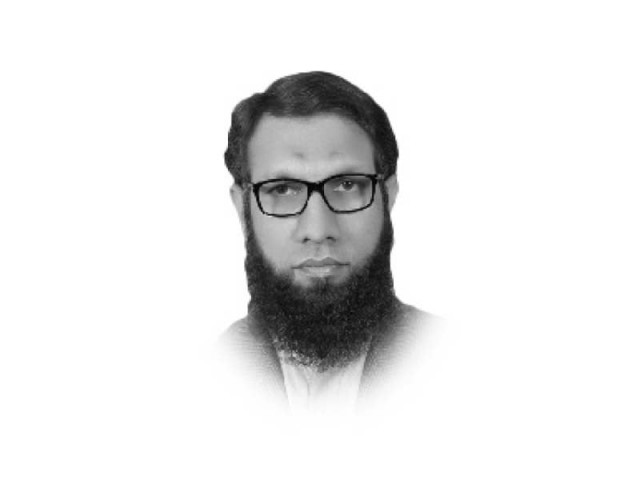Of heroes and traitors
A former ambassador in the US spits venom against his own country

It is shocking to hear a former ambassador in the US spitting venom against his own country when it could prove damaging to Pakistan’s economic and strategic interests. My gut feeling kept poking me to jump on to the bandwagon and start calling him a traitor and a RAW stooge but that, I thought, would be unhelpful and self-approving. So, I started exploring the reasons that could have led a Pakistani to behave the way he does and the way forward to make Pakistan a country equally owned and loved by everyone.
Hussain Haqqani reminded me of Khan Abdul Ghaffar Khan, the grandfather of Asfandyar Wali, who was buried in Jalalabad, away from his hometown in Charsadda, as per his will to protest the usurpation of provincial rights. He was a prominent Congress leader and advocated a homeland for Pashtuns living on both sides of the Durand Line. His dream vanished after the referendum in then NWFP. His son, Abdul Wali Khan, was declared a traitor by rulers for his continued opposition to hegemonic policies that reflected in the way power and resources were distributed between the Centre and provinces.
Sheikh Mujibur Rahman, another so-called iconic traitor, had initially no ambitions to part ways with Pakistan. Before his six-point charter of demands which was followed by armed resistance and shaking hands with Pakistan’s enemy, Mujib was just asking for equitable distribution of resources, preserving the cultural identity of Bengalis, and advocating for their proportionate representation in the top echelons of institutions. Instead of addressing the core grievances, he and the likes of him were jailed and humiliated causing deep resentment among the people he was fighting for.
Nawab Akbar Bugti was first declared traitor and then killed in hopes that it would make the Baloch more patriotic towards the country. The core issue of economic and political deprivation was never addressed. Every government in the Centre blamed the sardars who in turn accused the Centre of a belligerent attitude. In fact, both are equally responsible for the situation in Balochistan. The federal government, while appraising development projects for funding look primarily at economic feasibility. Since population in Balochistan is sparse, no project qualifies to be feasible and the funds go elsewhere.
The NFC Award is predominantly based on population and the lion’s share goes to the province with numerical superiority. The meagre share Balochistan receives ends with powerful predators in the name of maintaining an archaic sardari system. The sardars would never allow their people to step out of the miserable socio-cultural conditions they have been living in for centuries. Poor and ignorant people serve the sardars’ perpetual hold on power.
Then we had to contend with a self-exiled leader who kept changing his colours and thrived on coercive tactics cloaked in the Muhajirs’ grievances. For him, the ends justified the means. He established a strong command structure in Karachi with tools of intimidation to ensure uninterrupted flow of notes and votes. But can anyone ask why Altaf Hussain had become so omnipotent and omniscient? Was he not a useful and necessary anchor for Karachi until recently?
Given the historical context of how ordinary individuals are made heroes only to be declared traitors later, one should understand Hussain Haqqani for what he says and does. He is the product of our deep-rooted systemic failures. We have yet to set our country’s direction right in terms of civil-military relationship, the role of Islam in state affairs, and the equitable distribution of resources. Unless genuine grievances of the disadvantaged and deprived regions are addressed, we would have more traitors notwithstanding our slogans and symbols stressing patriotism.
Published in The Express Tribune, March 28th, 2021.
Like Business on Facebook, follow @TribuneBiz on Twitter to stay informed and join in the conversation.















COMMENTS
Comments are moderated and generally will be posted if they are on-topic and not abusive.
For more information, please see our Comments FAQ